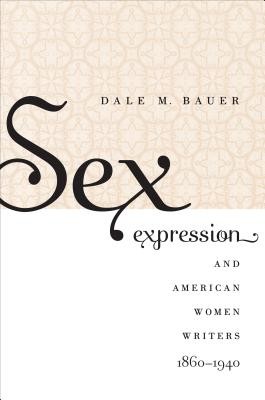
- We will send in 10–14 business days.
- Author: Dale M Bauer
- Publisher: University of North Carolina Press
- ISBN-10: 0807859060
- ISBN-13: 9780807859063
- Format: 15.5 x 23.1 x 2 cm, softcover
- Language: English
- SAVE -10% with code: EXTRA
Sex Expression and American Women Writers, 1860-1940 (e-book) (used book) | bookbook.eu
Reviews
Description
American women novelists of the late nineteenth and early twentieth centuries registered a call for a new sexual freedom, Dale Bauer contends. By creating a lexicon of "sex expression," many authors explored sexuality as part of a discourse about women's needs rather than confining it to the realm of sentiments, where it had been relegated (if broached at all) by earlier writers. This new rhetoric of sexuality enabled critical conversations about who had sex, when in life they had it, and how it signified.
Whether liberating or repressive, sexuality became a potential force for female agency in these women's novels, Bauer explains, insofar as these novelists seized the power of rhetoric to establish their intellectual authority. Thus, Bauer argues, they helped transform the traditional ideal of sexual purity into a new goal of sexual pleasure, defining in their fiction what intimacy between equals might become.
Analyzing the work of canonical as well as popular writers--including Edith Wharton, Anzia Yezierska, Julia Peterkin, and Fannie Hurst, among others--Bauer demonstrates that the new sexualization of American culture was both material and rhetorical.
EXTRA 10 % discount with code: EXTRA
The promotion ends in 6d.19:34:03
The discount code is valid when purchasing from 10 €. Discounts do not stack.
- Author: Dale M Bauer
- Publisher: University of North Carolina Press
- ISBN-10: 0807859060
- ISBN-13: 9780807859063
- Format: 15.5 x 23.1 x 2 cm, softcover
- Language: English English
American women novelists of the late nineteenth and early twentieth centuries registered a call for a new sexual freedom, Dale Bauer contends. By creating a lexicon of "sex expression," many authors explored sexuality as part of a discourse about women's needs rather than confining it to the realm of sentiments, where it had been relegated (if broached at all) by earlier writers. This new rhetoric of sexuality enabled critical conversations about who had sex, when in life they had it, and how it signified.
Whether liberating or repressive, sexuality became a potential force for female agency in these women's novels, Bauer explains, insofar as these novelists seized the power of rhetoric to establish their intellectual authority. Thus, Bauer argues, they helped transform the traditional ideal of sexual purity into a new goal of sexual pleasure, defining in their fiction what intimacy between equals might become.
Analyzing the work of canonical as well as popular writers--including Edith Wharton, Anzia Yezierska, Julia Peterkin, and Fannie Hurst, among others--Bauer demonstrates that the new sexualization of American culture was both material and rhetorical.


Reviews